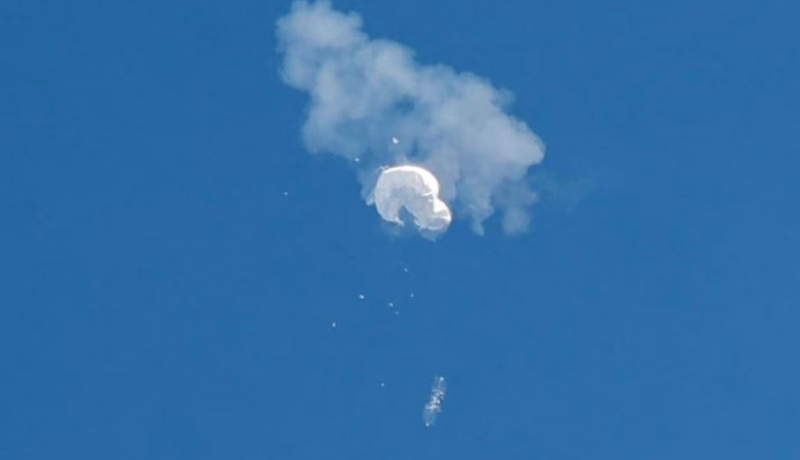A US fighter jet shot down a suspected Chinese spy balloon off the coast of South Carolina on Saturday, bringing an end not only to days of sky-high drama but also dealing a painful and public blow to what were hopes of a long-awaited thaw in relations between the superpowers.
Political uproar over the ‘surveillance balloon’ circling the United States last week not only saw a planned visit to Beijing by the US’s top diplomat cancelled, it now threatens to derail efforts by both countries to rebuild their relationship.
The reaction in the United States to what appears to be contemporary espionage could have long-term consequences for efforts to reestablish positive ties after several years of high tension.
Read more: Blinken Cancels China Trip as ‘Spy Balloon’ Strains Ties
US lawmakers want President Joe Biden, a Democrat, to hold China accountable for what officials say are violations of US rights.
US Secretary of State Antony Blinken, who cancelled a trip that was due to start on Friday, said he would still be ready to go to Beijing “if the situation permits”, but the administration may be pressured to put off a trip to China for some time, policy analysts said.
Daniel Russel, the top US ambassador to Asia under President Barack Obama, said China’s “ridiculous alibi” that the airship was a faulty weather balloon did not help.
Relations between the superpowers have been strained over the past few years and reached a new low last August, when US House Speaker Nancy Pelosi visited Taiwan, prompting Beijing to conduct military exercises near the island it claims belongs to China.
Since then, Biden’s administration has said they hoped to build “ground” for the relationship and ensure that the dispute did not escalate into a conflict.
But the Republicans who control the House have been quick attack Biden over the balloon, questioning how it was allowed to enter the US airspace.
China Craves Stability
China has often complained about growing military surveillance by US ships and aircraft, although such operations in recent years have been carried out from international waters and aircraft.
But had Blinken gone ahead with the trip, it would have led to strong criticism that his approach was weak.
The expectations of Blinken’s visit were low, but he wanted to raise the names of American citizens who the United States says are wrongfully detained in China, and push Beijing to cooperate in stopping the spread of fentanyl.
China, in turn, wants a stable relationship with the US so that it can focus on its economy, which has been plagued by its now abandoned zero-Covid policy.
Blinken’s visit – which would have been the first by a US secretary of state since 2018 – was being seen as an effort to lay out solutions for future challenges.
McCarthy Taiwan Trip Spark
With a trip to Taiwan planned by new House Speaker Kevin McCarthy likely this year, the next challenge may not be far off.
“Overall, I think the Biden administration wants to reform, because there are many issues on the table and a real chance of a thaw. But the balloon event probably means that the thaw has been stopped forever,” said the RAND Corporation Indo-Pacific expert, Derek Grossman.
But Ryan Hass, a China expert at the Brookings Institution, said on Twitter that China’s balloon mission gave the United States and China an opportunity to enforce airspace and high-altitude rules, where the two countries’ militaries will do so.
“We must not waste this opportunity to reduce the risk and prevent violations of US aircraft by PRC spy balloons,” Hass said.
- Reuters with additional editing by Sean O’Meara
Also on AF:
China Using Drones to Map And Survey Antarctica
China Uses AI Software to Lift Surveillance Capabilities
























